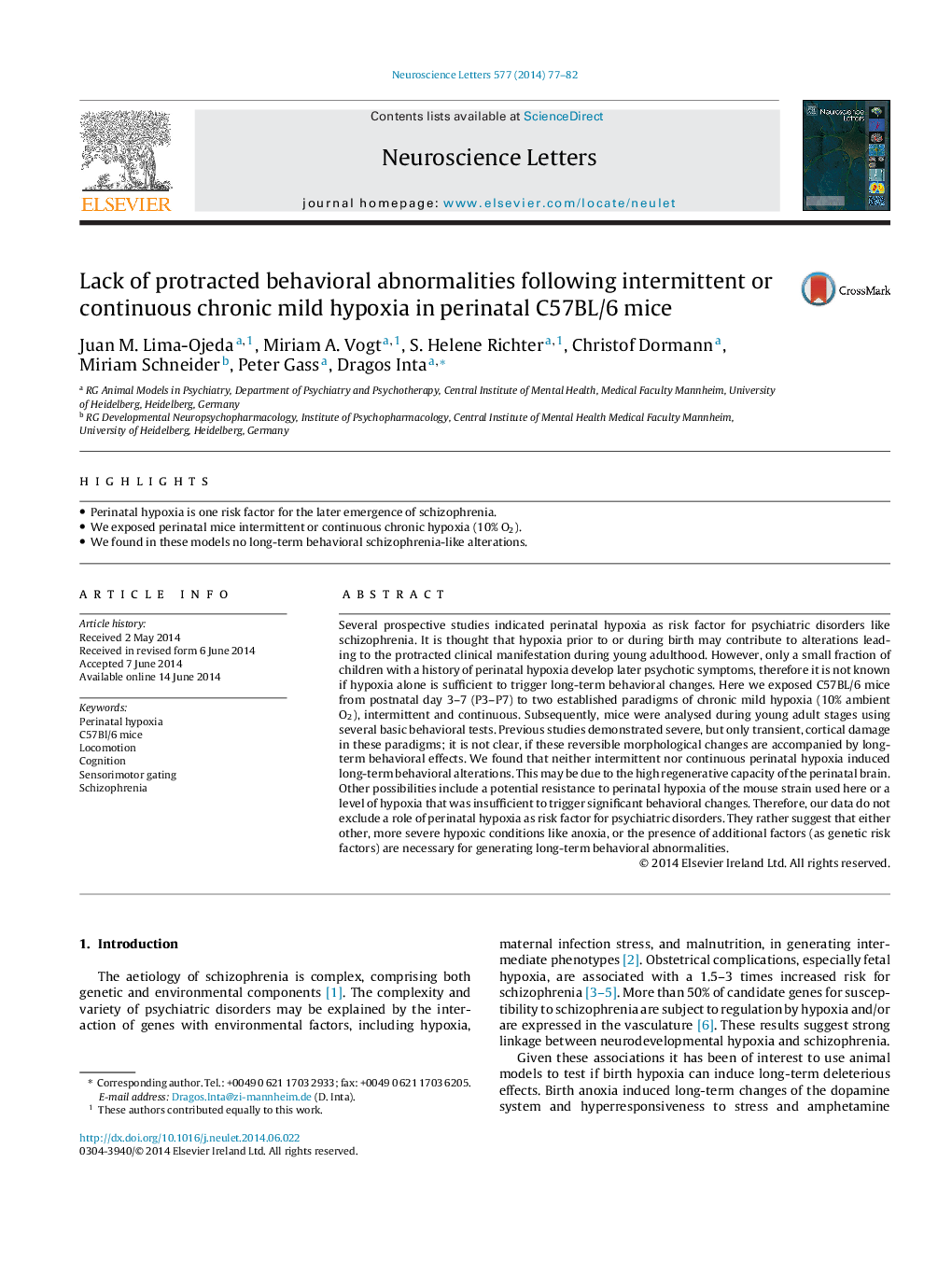| کد مقاله | کد نشریه | سال انتشار | مقاله انگلیسی | نسخه تمام متن |
|---|---|---|---|---|
| 4343703 | 1615122 | 2014 | 6 صفحه PDF | دانلود رایگان |

• Perinatal hypoxia is one risk factor for the later emergence of schizophrenia.
• We exposed perinatal mice intermittent or continuous chronic hypoxia (10% O2).
• We found in these models no long-term behavioral schizophrenia-like alterations.
Several prospective studies indicated perinatal hypoxia as risk factor for psychiatric disorders like schizophrenia. It is thought that hypoxia prior to or during birth may contribute to alterations leading to the protracted clinical manifestation during young adulthood. However, only a small fraction of children with a history of perinatal hypoxia develop later psychotic symptoms, therefore it is not known if hypoxia alone is sufficient to trigger long-term behavioral changes. Here we exposed C57BL/6 mice from postnatal day 3–7 (P3–P7) to two established paradigms of chronic mild hypoxia (10% ambient O2), intermittent and continuous. Subsequently, mice were analysed during young adult stages using several basic behavioral tests. Previous studies demonstrated severe, but only transient, cortical damage in these paradigms; it is not clear, if these reversible morphological changes are accompanied by long-term behavioral effects. We found that neither intermittent nor continuous perinatal hypoxia induced long-term behavioral alterations. This may be due to the high regenerative capacity of the perinatal brain. Other possibilities include a potential resistance to perinatal hypoxia of the mouse strain used here or a level of hypoxia that was insufficient to trigger significant behavioral changes. Therefore, our data do not exclude a role of perinatal hypoxia as risk factor for psychiatric disorders. They rather suggest that either other, more severe hypoxic conditions like anoxia, or the presence of additional factors (as genetic risk factors) are necessary for generating long-term behavioral abnormalities.
Journal: Neuroscience Letters - Volume 577, 8 August 2014, Pages 77–82